- Home
- Susan Hill
Black Sheep
Black Sheep Read online
Contents
About the Book
About the Author
Also by Susan Hill
Dedication
Title Page
Part One
Chapter 1
Chapter 2
Chapter 3
Chapter 4
Chapter 5
Chapter 6
Part Two
Chapter 7
Chapter 8
Chapter 9
Chapter 10
Chapter 11
Part Three
Chapter 12
Chapter 13
Chapter 14
Part Four
Chapter 15
Chapter 16
Chapter 17
Chapter 18
Copyright
About the Book
The village is called Mount of Zeal. It’s built in a bowl like an amphitheatre, with the winding gear where the stage would be. The pit lies below. Ted Howker’s school is on the edge of Lower Terrace next to the chapel. Upper Terrace – in a thunderous echo of the Bible so loved by Ted’s grandfather – is Paradise. Ted and his father and his brothers live in Middle. In the beginning: a household of men, all of whom work in the pit... The reader follows Ted as he reaches for Paradise, and his sister Rose as she seeks personal happiness below. And in the end it is the women who, sadly, inherit the earth.
Susan Hill is an exceptional writer at the height of her powers. Every word is precisely right: the descriptions of the village and the pit, the people and the farm are exact and powerful; the heartbreak is inevitable yet new; and the imagery and imagination take your breath away.
About the Author
Susan Hill has been a professional writer for over fifty years. Her books have won awards and prizes including the Whitbread, the John Llewellyn Rhys and the Somerset Maugham; and have been shortlisted for the Booker. She was awarded a CBE in the Queen’s Diamond Jubilee Honours. Her novels include Strange Meeting, I’m the King of the Castle and ghost story The Woman in Black, the stage play of which has been running in London’s West End since 1988. Her previous novellas include The Beacon and A Kind Man. She is married with two adult daughters and lives in North Norfolk.
Also by Susan Hill
Fiction
Gentleman and Ladies
A Change for the Better
I’m the King of the Castle
The Albatross and Other Stories
Strange Meeting
The Bird of Night
A Bit of Singing and Dancing
In the Springtime of the Year
The Woman in Black
Mrs De Winter
The Mist in the Mirror
Air and Angels
The Service of Clouds
The Boy Who Taught the Beekeeper to Read
The Man in the Picture
The Beacon
The Small Hand
A Kind Man
Dolly
Non-Fiction
The Magic Apple Tree
Family
Howards End is on the Landing
The Simon Serrailler Crime Novels
The Various Haunts of Men
The Pure in Heart
The Risk of Darkness
The Vows of Silence
The Shadows in the Street
The Betrayal of Trust
A Question of Identity
For Children
The Battle for Gullywith
The Glass Angels
Can it be True?
For Penelope Hoare
Best of Editors for half a lifetime.
Black Sheep
Susan Hill
PART ONE
1
ON MONDAYS, THE village, which was called Mount of Zeal, smelled of washing as well as of coal dust. By the time the children were walking to school, kitchens and sculleries were full of steam, and suds drifted out of the open doors of Lower Terrace and rose to join those from Middle Terrace, and then Upper Terrace, known as Paradise.
Mount of Zeal was built in a bowl like an amphitheatre, with the pit winding gear where a stage would be. The pit lay deep below it all.
Once, when Ted Howker was four, he had asked why, if Upper Terrace was called Paradise, the pit was not called Hell. Evie had boxed his ears and told him she would wash his mouth out with soapsuds if he ever said such a thing again and her face had such a power of meaning on it that he had not, but the power did not extend to his thoughts and imaginings, and sometimes at night his dreams were lurid with flames.
‘It comes from your grandfather,’ Evie said, ‘it comes from what you have heard him read out loud all these years.’ But Ted knew that her power did not extend in that direction either.
School was on the far edge of Lower, next to the chapel. It took nine minutes to walk there, and on his first two mornings Evie had taken him, his hand clamped in hers. On the third morning, Rose had walked him, leaving his hand free. She had finished senior school the previous summer and had no position, nor the prospect of one.
On the fourth morning, and on every one after that for the rest of his school life, Ted had been sent off alone, as had happened to his brothers years before him. In no time he had learned where others emerged from their own houses and he joined up with them on this or that corner, and with more as they came from Paradise and Middle Terrace, down the steep hill, while the older ones went the reverse way, joining at corners and then climbing the hill to the larger school.
Now, Ted was eight, rising nine, and confident, no longer the youngest child to walk with his snap tin held under his arm.
It was mid-September, warm, and the sky above Mount of Zeal was an Italian painter’s blue, as revealed in the postcards pinned on the walls of the school corridor by Miss Irons, who loved Art. But the village saw little of the Italian painters’ gilded light, which could rarely pierce through the pall of soot.
It was Monday and the suds hung on the still air, never rising higher than Middle Terrace, but eventually just evaporating there.
‘You can help,’ Evie Howker said. Then raised her voice. ‘I know what you’re doing, Rose.’
She had heard the bump of the trunk lid on the floor above, however quietly Rose had tried to open it.
She would have shouted again and in a voice not to be denied, but something inside her softened for a moment and she let her daughter be. She stood to rest her arms on the washtub. It would all come to Rose soon enough as it was, the piles of bedding and blackened shirts and vests, the baby muslins and the metal tub of grey water.
Evie edged round the tub to lean instead on the door frame, looking out, the suds wreathing round her head.
Mount of Zeal rose in steps to Paradise and then ended, after a short incline, apparently having reached the sky itself, though only because the hill was too steep to reveal the open land beyond. After that, tracks led across country, one to Mount of Zeal farm, a mile and a half away, the others to the sheep moors, spreading and clambering across stony outcrops.
Her mother could not have heard the trunk opening. Perhaps she did not know about her interest in the trunk at all, was Rosie’s thought whenever she went to it. The first layer was of two folded winter blankets, the next of saved baby clothes, all for a girl. There had been four boys and by the time the clothes had got down to Ted, the afterthought, they were all wear and patches, but Rose was the only daughter. Her infant and small-girl clothes formed a beautifully washed and pressed and folded layer, with sheets of brown paper separating them from the bedding.
Now, she moved them aside carefully. Did her mother know? Rose had never seen her look in the trunk other than to take out the winter blankets when the weather hardened. At the very bottom were two hand-embroidered pillowcases and a small white tablecloth with drawn threadw
ork, all given to Rose by her Great-Aunt Etta, a few days before she had died.
‘You put them safe away.’ Her paper-dry hand had pressed down on Rose’s soft young one.
‘Never used, never once. I kept them for my own bottom drawer and bottom drawer was where they stayed, there being no marriage.’
‘Why not?’ Rose had not yet grown embarrassed to ask such things openly. In her mind, her great-aunt’s would-be husband must have been killed in the war or died of a wasting disease or a tropical fever.
‘No man ever asked me.’
Which had silenced her. She had stared at the old face and chin warts and bristle, into the flat, discoloured eyes, half hidden deep below the lids, and the flaking baldness through the veil of hair, and although of course she had known in her head that Etta had once been young and without these defects, the 94-year-old and youth had still been unimaginable partners.
‘I might have had more. I don’t remember. I know I had towels. I must have given those away. I had a satin nightdress case and I did give that away, once it was clear my chance had gone. I don’t know why I kept these. I don’t remember. You should have them, Rose, for your bottom drawer. You can never begin too soon, there’s so much to gather, or how is a married home to be started? Your chances are all waiting ahead of you.’
When she had got home to Lower Terrace with the parcel, her mother had been out helping a neighbour newly home from hospital, so Rose had been able to take the things upstairs and hide them in the trunk that also served as a clothes horse and a seat in the front bedroom. It was not a secretive nature but only embarrassment that had made her want the things kept from Evie, at least for the time being. A ‘bottom drawer’ had a meaning beyond itself, to do with things of which Rose was only just becoming fully aware and with which she was not yet at ease.
The house was quiet, save for the bump and churn of the washtub. Her mother had called her but she had pretended not to hear. She had just a minute or two to herself and such minutes were rare enough. The men were always on different shifts and if two were nights then the bedrooms were crammed full of sleepers. Ted got home from school at half past four and people came in and out. Minutes to yourself in a quiet house were precious and to be savoured for this reason.
Rose lifted up the winter blankets, reached under the baby clothes, and felt about for her pillowcases and the tablecloth. She would not risk bringing them out to the light, just liked to feel the raised embroidery under her fingers and the smooth edges of the threadwork round the silky cotton. She wished she had some way of adding to them, or even of having a real drawer kept specially for those things. She pictured how the cloth would be on the tea table, laid with best china for a visitor, pillowcases puffed up and gracing a wide bed.
She was sixteen. Perhaps she would be married in two years and that was not long in which to gather her linen together.
‘Who is it to be, Rose?’ her grandmother always asked. ‘Jenny Keele has a couple of fine lads.’
But Rose would not be drawn, though she always shook her head at any mention of the Keeles, Norman and Mart, hulks of boys, who had been two years ahead of her in school and were now pushing the heaviest carts and swinging the pickaxes to start new coal seams. She was frightened of the very idea that she might marry a Keele. They came to the monthly dances looking scrubbed and smart like the rest and then Rose had sometimes given them a slightly longer scrutiny. But they were like bears, broad and huge-handed. Even in best white shirts and shoes, not boots, they alarmed her and she was happy for any of the others, Sal, Annie or Lily Harris, to be led out to dance by them and have their feet trodden on by great clumping heavy ones.
‘Rose!’
She smoothed out the blankets, closed the trunk without bumping the lid, and went down to the scullery.
Evie handed the mangling over to her. John Howker, Jimmy and Clive would be back at half two from their shift and wanting dinner. Arthur, the eldest, was on nights, which he had preferred from the start, out at six thirty, home at four. He liked the walk home from the pithead best, he always said, through dark and silent streets. It was hot in the mine, but at four in the morning, the village was always cool, even in July and August, and bitter cold in winter. That was the only thing Rose knew for sure about Arthur, the silent brother, that he liked the cold and the night around him. He was the only one who came home alone into the sleeping house, sat at the table by himself, eating the dinner left for him. Evie would have stayed up, altered her pattern of sleeping so that she could help him take off his pit clothes and his boots, serve his dinner, hand him his night things, set his boots out to clean. Other mothers did, and wives and sisters and daughters. Evie felt guilty at being in bed when Arthur got back, even though it was not her fault, but what he insisted on. As a small child, he had liked to take his dinner into the scullery to eat alone, if he could get away with it, and when he had walked to school carrying his bait tin, he had never joined up at the corners with any of the others, just walked on by himself.
She had given up worrying about him now.
‘Look at it like this,’ John had said once, ‘he’s never going to leave here to wed, he’s never going to strike up a conversation with any girl, he’ll be bringing his wage home till the time comes when he hangs up his boots.’
‘And then what? Two great pairs of legs stuck out of the chairs for me to trip over half the day.’
But the idea that she would never be left on her own had been soothing.
She put cold potatoes on to fry up and the cold joint out to slice. Monday dinner. Rose mangled. The kitchen smelled of hot wet sheets and the sun came out over the top of Paradise and slanted down onto the brick wall.
Rose had a fine head of hair, she thought, watching her daughter straighten up to haul a sheet from the tub, thick hair and wavy and gleaming like conkers.
Evie knew full well about the pillowcases and tablecloth, because Aunt Etta had told her, and besides, Rose had not been as quiet as she’d supposed, the bottom of the trunk always scraped on the floor however silently she tried to open and close the lid. She wondered why Rose wanted to keep it secret. She was only a few years off being a respectable age to marry and every other girl started a bottom drawer. When the time came, she herself had some things stored away to give to her, as her own mother had done for her. But Rose was not like the rest of them, any more than Arthur was, and it sometimes troubled Evie that she had given rise to two what you might call ‘misfits’ – though never for long, because her days were too full.
She carved the meat into slices, and the end bit into three small chunks. The apple pie was untouched, as she always baked two identical, one for hot at Sunday lunch, the other for cold supper Monday, and a slice for Ted’s bait. Ted. She had wondered if he would be another misfit but he seemed to be growing up ordinarily, joining up with friends on the corner, playing out with them, thumping and getting thumped, asking John about the pit. It hovered on the farthest edges of Evie’s mind sometimes, that Ted ought to have something else to look forward to than the pit, something better, more . . . what? Adventurous, she had once answered herself, and almost laughed aloud. What would anyone do with an adventure? Ted was up to where he ought to be at school, though no further. He was growing, though he was still alarmingly thin, he chattered, he scabbed his knees and banged his head, like the rest of them. Ted would not be a misfit and marriage to the right boy would set Rose back in the fold, too. It was only Arthur.
‘Rose, haven’t you got the last of those whites out of the tub yet? It’s gone twelve. Come here, I’ll take them, you can do the privy scrub. And don’t look at me like that, girl.’ For Evie felt a rush of impatience with her daughter, standing with her hands still on the tub, looking at nothing out of the door. What was life about?
At five, the washing for Alice was ready to be carted up to Paradise, on the pram. Evie had done her mother-in-law’s washing as well as her own for the last three weeks, because Alice was weak in some way, couldn�
�t lift her arms properly and got white with tiredness. ‘I’m beyond tired,’ she had said several times. Evie understood. Tiredness was usual, especially at the end of every working week, your entire body was cried out with tiredness. But a night’s deep sleep without having to set the alarm on Sunday morning generally sorted it out. Alice looked as if the tiredness had settled in the marrow of her bones.
‘What’s wrong with Alice?’ Evie had asked her father-in-law. ‘Has she said anything? Have you asked her? Have you even noticed?’
But Reuben Howker noticed nothing. ‘She says she’s ailing somehow.’
‘Yes, but what-how?’
He shook his head, turning his eyes back to the Book. ‘She’s not very swift about the place.’
Evie could have shaken him until his brains rattled, could have picked him up and kicked him out of the door and down the hill from Paradise to Lower and on down to the pit, which he had left one day nine years before and never returned to, saying he had seen the Devil below and been tempted, saying he could never go back for fear of losing his soul. Evie had wanted to shake him that day and every day after. His description of the Devil had been vivid and horrifying, others had murmured their sympathy, some had crossed the street to avoid being in any form of contact with him, and many had thought he should have been sent away. Only Evie, and perhaps John, though his conscience half told him he should side with his father, refused to believe any of it. Reuben had always hated the pit and been off sick whenever he could manage it, sustained this or that generally invisible injury, had left the work to Alice and sat in the corner with his Bible all day and half the night. Only Evie had had the nerve to call him idle to his face.
If it had not been for Alice, she would never have set foot in their house again, and instructed her family to do likewise. But she loved Alice, who was tested beyond human endurance and put up with it all meekly, she would help Alice while she had strength in her body, and her family followed suit.

 Mrs De Winter
Mrs De Winter A Question of Identity
A Question of Identity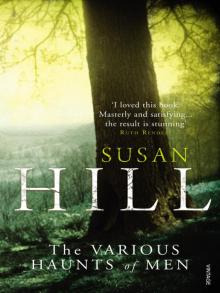 The Various Haunts of Men
The Various Haunts of Men The Pure in Heart
The Pure in Heart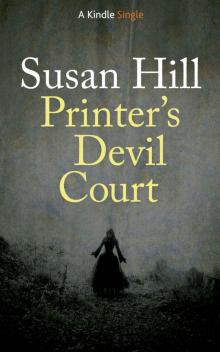 Printer's Devil Court
Printer's Devil Court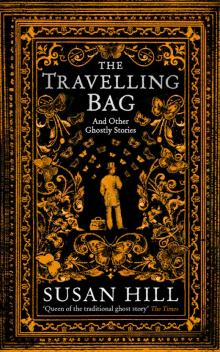 The Travelling Bag
The Travelling Bag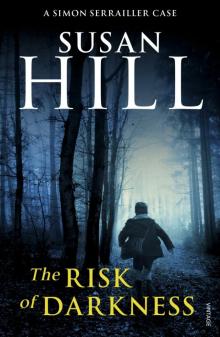 The Risk of Darkness
The Risk of Darkness A Kind Man
A Kind Man Black Sheep
Black Sheep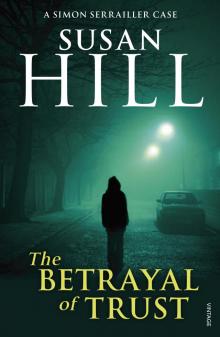 The Betrayal of Trust
The Betrayal of Trust The Service of Clouds
The Service of Clouds Betrayal of Trust
Betrayal of Trust The Small Hand
The Small Hand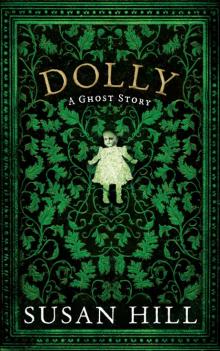 Dolly
Dolly Jacob's Room Is Full of Books: A Year of Reading
Jacob's Room Is Full of Books: A Year of Reading The Vows of Silence
The Vows of Silence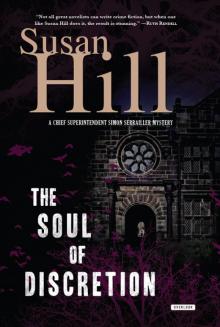 The Soul of Discretion
The Soul of Discretion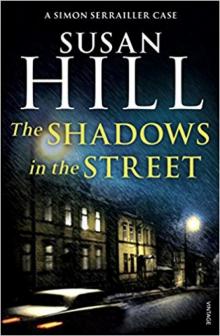 The Shadows in the Street
The Shadows in the Street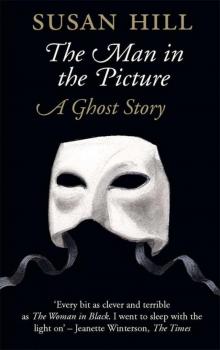 The Man in the Picture
The Man in the Picture Air and Angels
Air and Angels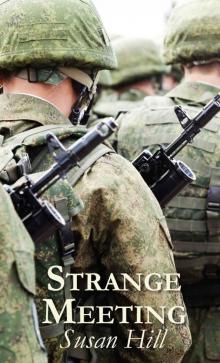 Strange Meeting
Strange Meeting In the Springtime of the Year
In the Springtime of the Year Howards End Is on the Landing: A Year of Reading From Home
Howards End Is on the Landing: A Year of Reading From Home From the Heart
From the Heart Old Haunts
Old Haunts The Mist in the Mirror
The Mist in the Mirror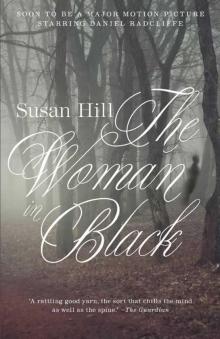 The Woman in Black: A Ghost Story
The Woman in Black: A Ghost Story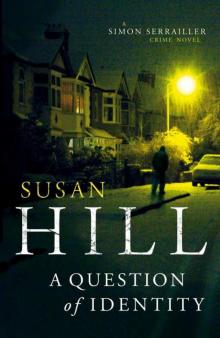 A Question of Identity (Simon Serrailler 7)
A Question of Identity (Simon Serrailler 7) The Comforts of Home
The Comforts of Home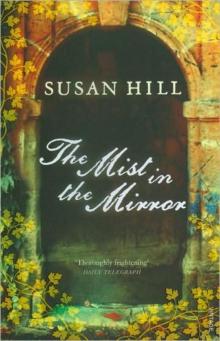 Mist in the Mirror
Mist in the Mirror Jacob's Room is Full of Books
Jacob's Room is Full of Books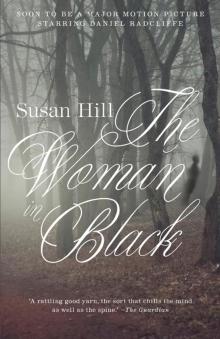 The Woman in Black
The Woman in Black Howards End is on the Landing
Howards End is on the Landing